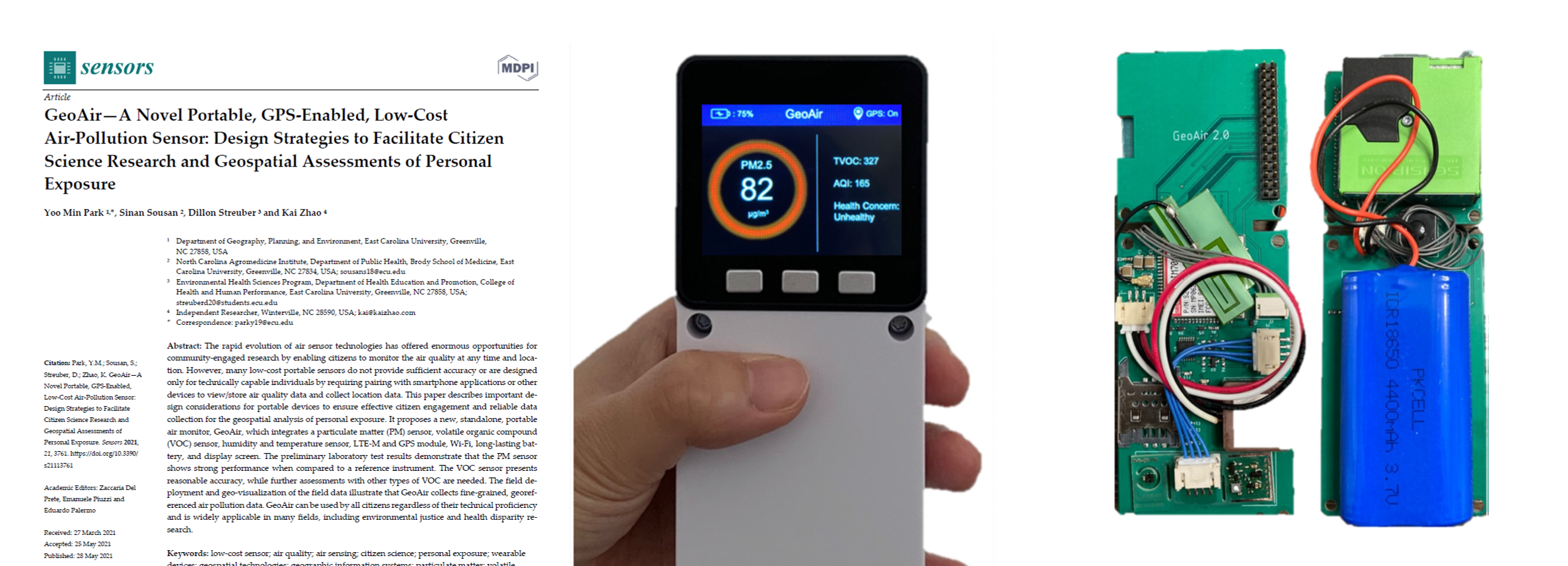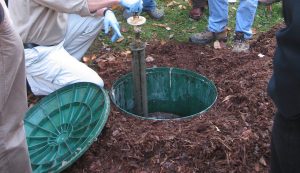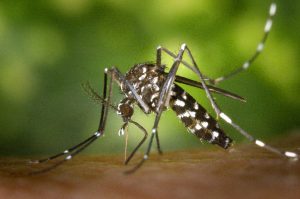Dr. Yoo Min Park (ECU Dept. of Geography) and Dr. Sinan Sousan published the following journal paper that presents a novel air quality device, GeoAir, to ensure effective citizen engagement and reliable data collection for geospatial analysis of personal airborne exposure. GeoAir can be used by all citizens regardless of their technical proficiency and is widely applicable in many fields, including environmental justice and health disparity research. The work was performed with the assistance of MS Environmental Health student, Dillon Streuber, who also served as co-author.
Park YM, Sousan S, Streuber D* and Zhao K (2021). GeoAir — A Novel Portable, GPS-Enabled, Low-Cost Air-Pollution Sensor: Design Strategies to Facilitate Citizen Science Research and Geospatial Assessments of Personal Exposure. Sensors 21(11):3761. doi:10.3390/s21113761
Abstract
The rapid evolution of air sensor technologies has offered enormous opportunities for community-engaged research by enabling citizens to monitor the air quality at any time and location. However, many low-cost portable sensors do not provide sufficient accuracy or are designed only for technically capable individuals by requiring pairing with smartphone applications or other devices to view/store air quality data and collect location data. This paper describes important design considerations for portable devices to ensure effective citizen engagement and reliable data collection for the geospatial analysis of personal exposure. It proposes a new, standalone, portable air monitor, GeoAir, which integrates a particulate matter (PM) sensor, volatile organic compound (VOC) sensor, humidity and temperature sensor, LTE-M and GPS module, Wi-Fi, long-lasting battery, and display screen. The preliminary laboratory test results demonstrate that the PM sensor shows strong performance when compared to a reference instrument. The VOC sensor presents reasonable accuracy, while further assessments with other types of VOC are needed. The field deployment and geo-visualization of the field data illustrate that GeoAir collects fine-grained, georeferenced air pollution data. GeoAir can be used by all citizens regardless of their technical proficiency and is widely applicable in many fields, including environmental justice and health disparity research.
*Dillon Streuber is an MS Environmental Health graduate student.




